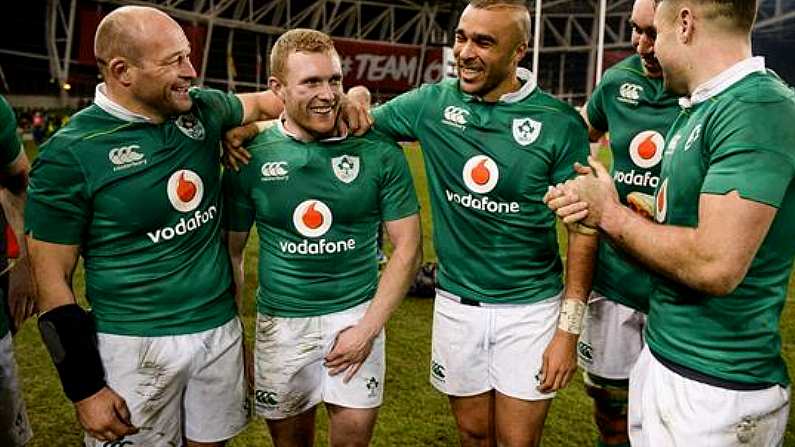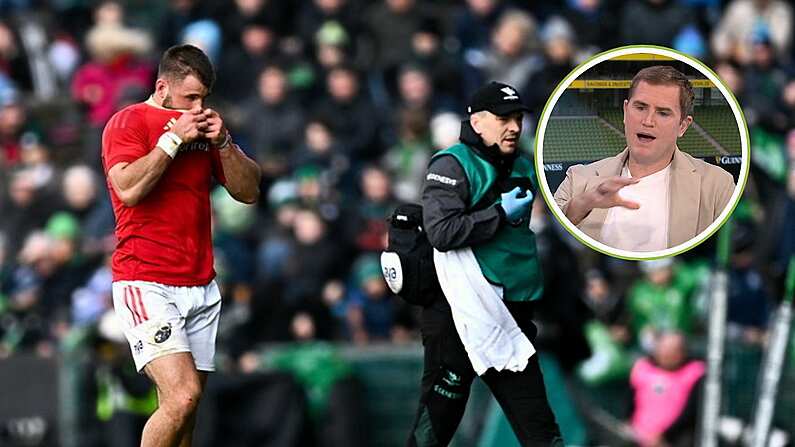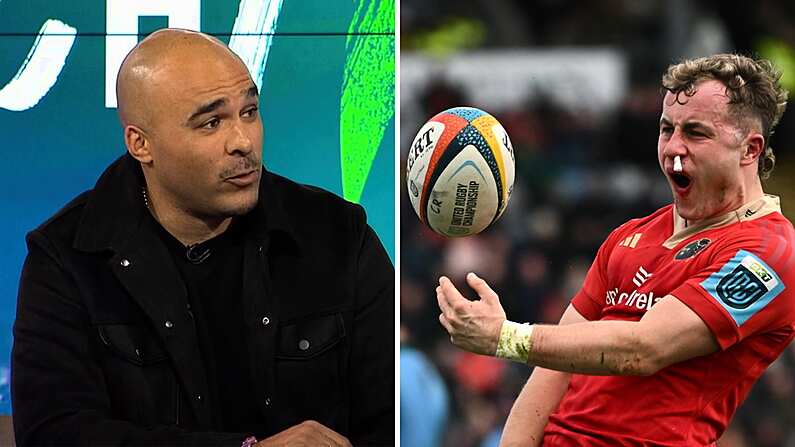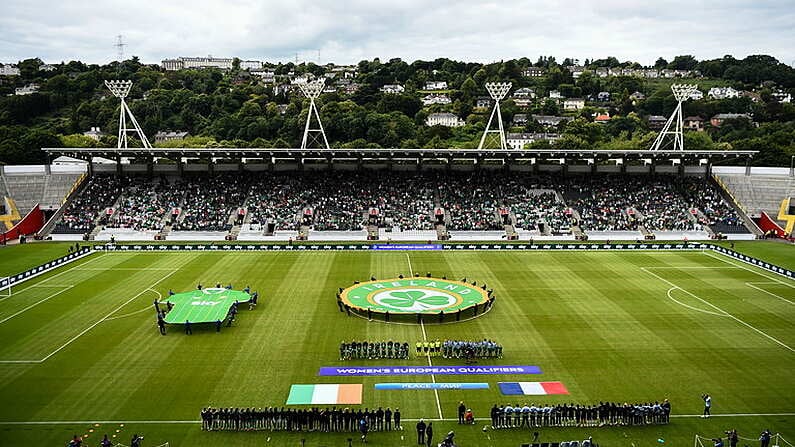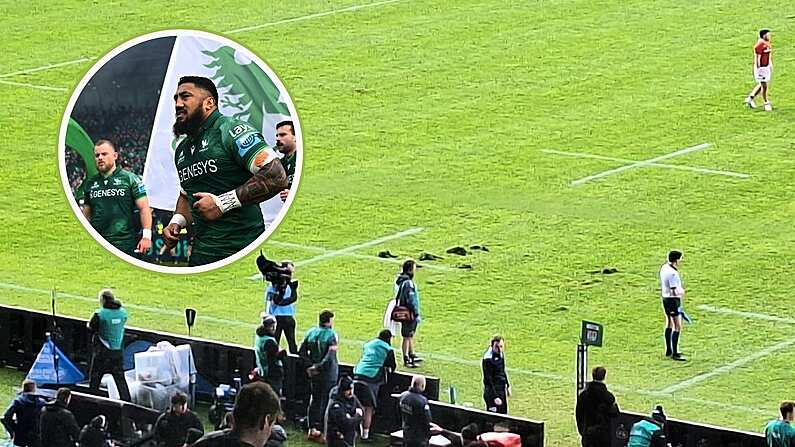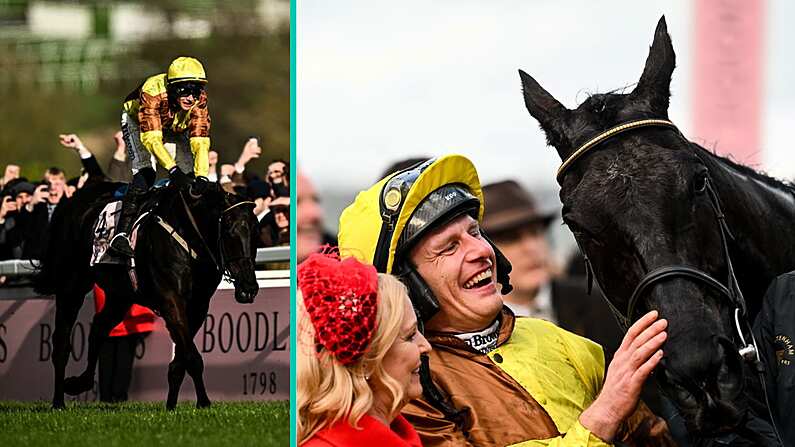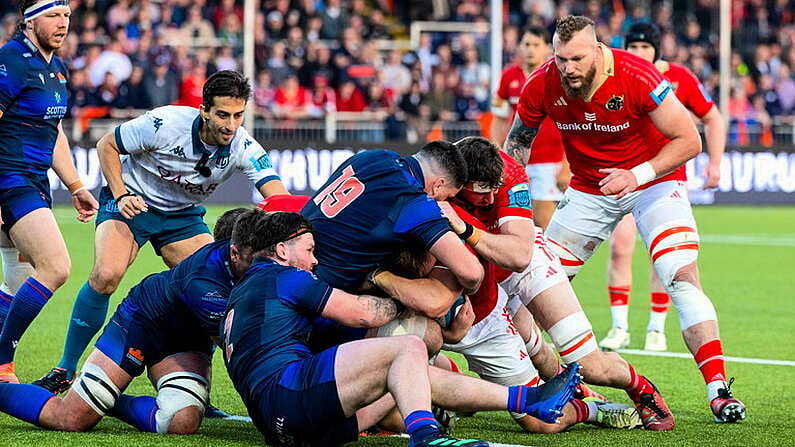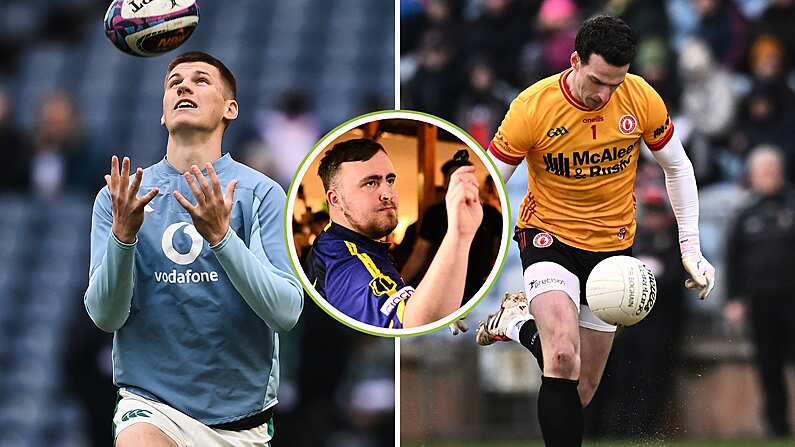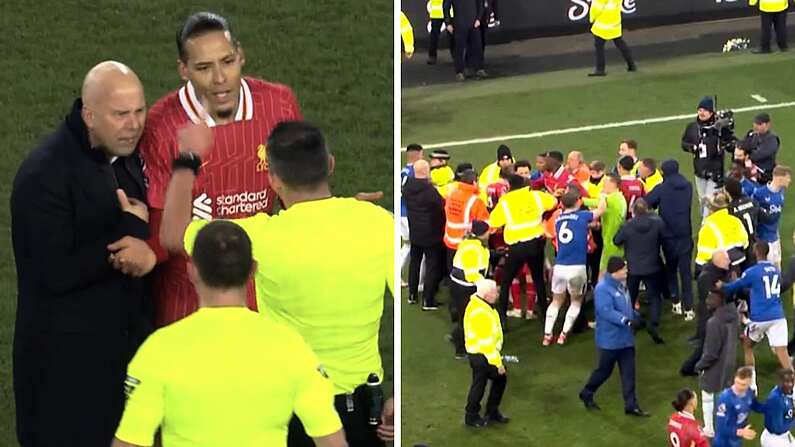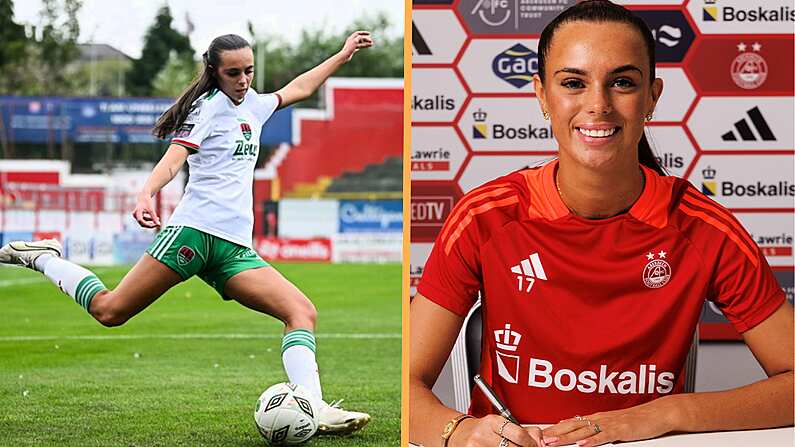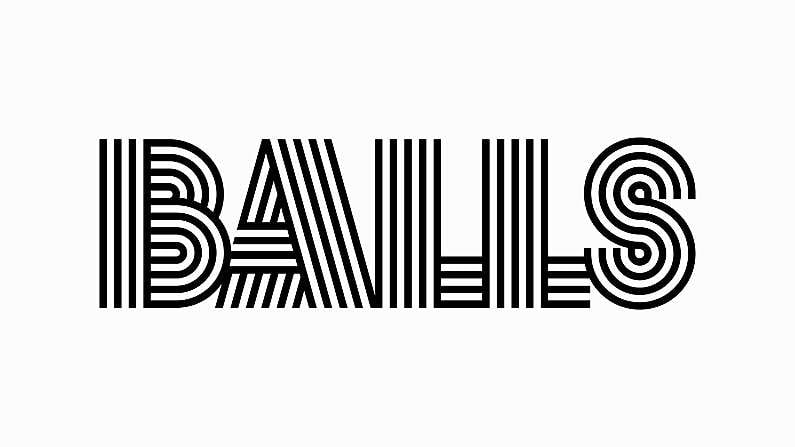There is a historic, epoch-defining result in this Scotland team, a win that will lift them from nearly men of the northern hemisphere to legitimately dangerous scalp-claimer. (And with the demise of French rugby, it would be a joy to see these Scottish swashbucklers regularly defeating decent teams on their terms, with rollercoaster rugby).
Joe Schmidt would be right to fear that the result in question will come Saturday afternoon. However history and form tell us otherwise.
Scotland have not won their opening Six Nations fixture since they upset France at Murrayfield in 2006. Much has been made of their vaunted backline and their attacking flair. The hype train has been building all week, with the likes of Jim Telfer lavishing praise on them.
“We've been talking about having three wins for years, but it's possible. I think this is the best Scottish squad since 1999. I've a feeling Vern is going to get some reward for the work they've done,” Telfer told the BBC.
Three wins: a modest enough goal. But platitudes aside, until that big win comes, the impression of Scotland under Cotter will always be of a team that falls just short. The team, for instance, who had Australia on the ropes this November with a few glorious tries but for all their derring-do, managed to lose by a point.
Yet the building aggro in the Pro 12 between Munster and Glasgow - the two form sides in their respective countries - suggests this game might have a more epic dimension than the historically dour battles between blue and green.
Targeting Murray Aggressively
Conor Murray’s return to Scotland will no doubt evoke bittersweet memories. He was in Glasgow three weeks ago, of course, where Glasgow opted to make his life a living hell. Murray was a constant target for cheap shots and late tackles, as Glasgow used Josh Strauss as a wrecking ball off the base of the scrum.
It’s difficult to say if the strategy worked - Murray had to go off for HIA in the second half, Munster won the match anyway - but Strauss will wear the #8 jersey for Scotland Saturday and destabalising Murray will be central to the Scotland game plan, as Gregg Laidlaw outlined this week.
“Glasgow did everything within the rules of the game. They are not trying to deliberately injure a player. We will be putting pressure on him, sure we will. He is not going to come to Murrayfield and get an armchair ride.”
Murray will be targeted. And speaking of legally controlled, the Scotland captain also made some interesting statements on the learnings from Ireland’s scraps with the All Blacks last November.
“The key difference in the second match was [New Zealand] reduced their error count and were more aggressive in defence. Those were what we feel were the two main differences.”
With Scotland desperate for an edge over Ireland, and given Ireland’s track record of losing its best players to injury, Scotland will no doubt look to lay down an early marker. Expect the chippiness from Scotstoun to be front and centre in Murrayfield.
Flair versus force
Gordon D’Arcy outlined the fascinating tactical battle between the competing backlines in his column in this week’s Irish Times - it will be width versus compactness, flair versus blunt force.
The question is how much will Ireland’s injuries cost them. Johnny Sexton’s absence has been lamented, but how will Ireland cope without Jared Payne, their defensive lynchpin? Andrew Trimble is also a massive loss in defense. That will leave Ireland without three of the seven backs that started versus the All Blacks in Soldier Field. Ireland know about the threat of Stuart Hogg and Finn Russell. They would have caught a glimpse of the havoc that Stormers centre Huw Jones can cause when they watched the highlights of the Australia game.
https://www.youtube.com/watch?v=XKRStcSgwv4
Containing the explosiveness of the Scotland backs will be central to any Irish hopes for victory on Saturday, and massive performances will be required from Keith Earls and especially Rob Kearney. Laidlaw has stated that kicking will be an integral part of the Scottish attack and Kearney will be under pressure to deliver a game like the one he had in Chicago.
The question is how many more games like that does Kearney have in him?
And then there is Paddy Jackson. The Ulster outhalf returns to the site of his inglorious Ireland debut four years ago, the terrible Ireland defeat that effectively ended the Kidney era. This will be Jackson’s biggest Ireland start and despite the Australia win, and it's unclear if the #10 jersey would be his if Joey Carbery was fit. With Schmidt talking down Sexton's chances of starting versus Italy at the team announcement Thursday, Ireland need a massive game from Paddy Jackson to ease nerves around 2017.
As far as backs go, Ireland won’t find much assurance on the bench either. Tommy Bowe will likely be capped for the first time since the World Cup. Beside him on the bench will be Ian Keatley, who’ll be experiencing an even less expected cameo. While it’ll exciting to finally see the Henshaw-Ringrose axis for Ireland, Scotland’s backs for this game are simply better than Ireland’s.
Ireland's call
Joe Schmidt will no doubt have a plan to thwart the Scotland attack and Ireland no doubt will do what they do best: ruthlessly execute on set pieces and punish opponents for inaccuracy. The scrum and lineout will provide the launching pad. Ireland have massive advantages in the front and back rows, and the loss of WP Nel at tighthead leaves an already callow Scotland scrum looking decimated. Expect a big Tadhg Furlong game.
Ireland can also find succour in history. They have owned Scotland this century. Defeats like the Dan Parks game at Croker in 2010 and the 2013 debacle have the taint of games that Ireland threw away. Scotland may feel they owe Ireland for hidings like the one dished out at Murrayfield 24 months ago but do they have the game plan and the nous to beat savvy and rugged Ireland side? Glasgow tried to bully Munster and Munster won anyway. We expect the same outcome Sunday.
At the end of the day, we share the opinion of Scotland assistant coach Jason O'Halloran that Scotland are 'two years away'. Result aside, this could be the match of the weekend. A Scotland side trending upwards, an imperious Ireland team seemingly poised to finally enter the true elite of world rugby, two countries in rude health in European club rugby. We know Ireland will be up for it. Will Scotland have the right plan?

